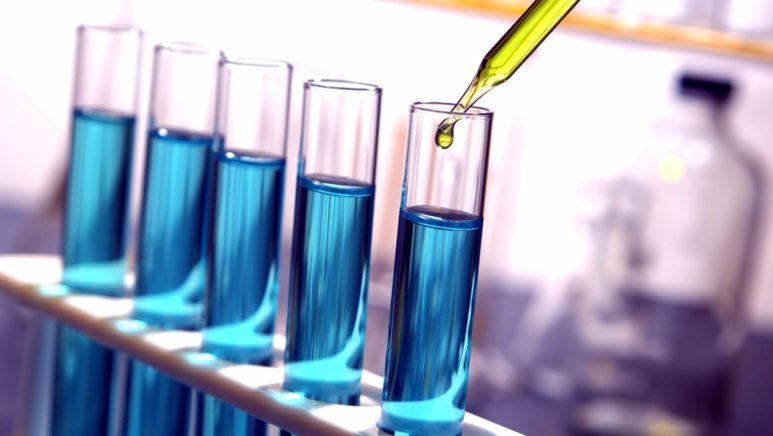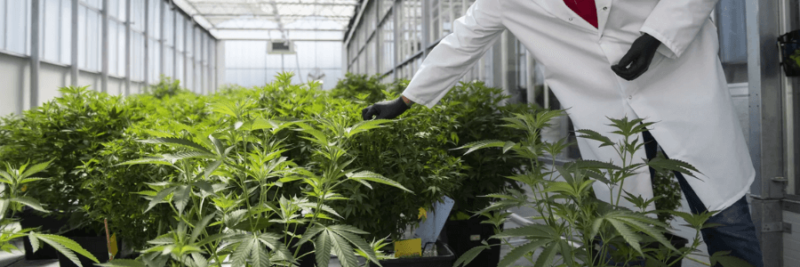Buy One Get One FREE on Everything. Use Code BOGO1
![]()
![]()


In recent years, CBD has gained popularity like no other. In addition to being organic, CBD has made itself as an effective remedy for just about anything. While it may sound like a brash exaggeration, it is shockingly not.
After the 2018 Farm Bill was passed in the United States, things changed a lot where hemp was concerned. You see, as per the bill, growing and cultivating hemp plants became federally legal.
The efficacy of the CBD chemical extends to a lot of other issues as well. There have been many clinical trials that be carried out by scientists throughout the years. We would like to tell you that there is still a lot of grey areas where CBD is concerned. But then again, the existing research that has been carried out should not be discredited as well.
In this article, we will focus on the clinical trials that have been conducted by experts. Fortunately, the findings of these CBD clinical trials have been positive. Still, there is scope for a lot more detailed and CBD clinical trials and studies in the field.


CBD is the short form for the term Cannabidiol. It is a chemical cannabinoid that is naturally found in the cannabis Sativa plant. The reason why it is done as a “cannabinol“ is because of its chemical composition.
We would like to point out that CBD is not the same as the cannabis Sativa plant. In other words, CBD is different from marijuana in general. In reality, CBD has anti-inflammatory and anti-depressant effects.
You can use CBD to maintain your mental and physical health. It is a relaxing catalyst that can have a positive effect on your body. You can your mind and muscles in the most efficient way with the therapeutic effects of this chemical.
This helps to protect and regulate the mental and physical well-being of the user. Getting an idea of the properties, researchers have started to look at the different applications in medicine. And, how it can be used for a number of disorders.


CBD oil has many potential health benefits. You can you CBD to reduce high levels of anxiety and depression. The anti-seizure effect of the CBD chemical can be great. This is for people who are suffering from epilepsy and seizure. In addition to this, cancer treatment, as well as pain relief, can be made possible by using CBD oil.
We have listed some of the most common misconceptions of using CBD. And, we are going to bust them to give you a more detailed insight into using CBD as a chemical.
There is abundant scientific proof that has established at CBD is a safe chemical. This is as per the clinical indications that have been found out in recent years.
Using CBD oil has comparatively fewer side effects on the human body as well. This is in comparison to the prescription drugs that are usually available in the market. But then again, we are not aware of the long-term effects of CBD oil.
The major chunk of the research that has been conducted in the field of CBD has been done on treatment-resistant epilepsy. And, psychotic disorders. We need more detail and clinical research to be conducted on human beings. This can give everyone peace of mind to make sure that there is no inimical impact on the health of the user.
Scientists have also seen the effects of CBD on animal models. On the basis of the different studies carried out, CBD is considered safe for use. But yes, it is important to pay careful attention to use CBD carefully.
We understand by this misconception comes from. Cannabis and marijuana have been often linked with drugs that are addictive. But, this theory should not be extended to the CBD chemical.
It will be interesting to note. That as per studies, CBD can be used as an intervention for addictive behaviors. So, it is quite ironic that people consider the CBD chemical as an addictive substance. The CBD chemical also has a therapeutic and holistic effect. In this world of cocaine an opioid, we need something that does not lead to substance abuse.
Since our body does not create a tolerance, substance abuse is not possible when it comes to CBD. This remains true even when CBD is used on a regular basis in higher doses.
Cannabidiol or CBD is a non-psychoactive element. In other words, if you consume CBD in higher amounts, you will not experience a state of euphoria. On the other hand, CBD does have potential health benefits. You can use the chemical to reduce the symptoms of a wide range of health conditions.
When you compare CBD to cannabis, you get to enjoy the health benefits. But, without the adverse effects that are commonly associated with marijuana. In short, you are in a win-win situation when you adopt CBD as a part of your daily life.
One of the biggest pros of CBD is that there are no confirmed side-effects. This stands uniform even on the repeated use of the CBD chemical.
Using CBD is quite a good way out. Generally, the chemical does not have any adverse effect on the health of the user. But then again, there are always exceptions.
There might be cases when CBD oil may lead to issues such as diarrhea, drowsiness, and lethargy. then the other issue might be fluctuations in the weight of the user. And, the mood of the user. But then again, the side-effects are mostly negligible and can be avoided.
It is when you use prescription drugs when you need to be careful with the CBD chemical. This is because CBD is known to alter the working of prescription drugs.
Having said this, we do need more detailed research in this field. Also, this research has to be conducted on human beings. This will help to fully understand the way CBD box after being used in the human body.


Chemical cannabinoids have always been subjected to research. The research has mostly been in vitro conducting it even before the compounds come in contact with animal models or human beings.
To make sure that the research is safely carried out, some precaution needs to be taken. The biochemical mechanism has to be properly understood.
In this part of the article, we have listed some pieces of research that have been conducted on CBD. The idea here is to understand how CBD affects the symptoms of a few health issues.
We have already mentioned how CBD is mostly used for curtailing seizure symptoms. In the year 2015, the first large-scale multicentre study was presented on 214 patients. These patients were suffering from the following health issues:
iii. Other intractable pediatric epilepsies.
It was found that after using CBD, there was a median reduction in seizures of around 36.5 percent. Then again, there were a few cons of this study as well.
There was a lack of a control group in the study. An open-table observational nature was also missing. Another limitation was that the follow-up after this research was of only 12 weeks.
Next, we would like to talk about the 2016 study which was conducted on 74 patients. In this Israeli review, 74 volunteers were treated with an oil that contains a CBD to THC ratio of 20:1.
In the end, experts concluded that there was a reduction in seizure frequency by 89 percent. Also, notable improvements in alertness, behavior, language, motor skills and so on were found. Communication and sleep had also greatly benefited from using the soil.
In this research, there were some faults in the study. This included reliance on parental report for seizure activity. And, a short duration of the study. A control group and proper measurement of other drug levels were also missing.
In May 2017, a double-blind placebo-controlled trial by Devinsky et al was studied. This was published in the New England Journal of Medicine as well. Around 43 percent of the patients with CBD had felt about a 50 percent reduction in convulsive seizure frequency. On the other hand, the one that used only the placebo group said a reduction of only 27 percent.
The research that has been conducted by experts strongly suggest that using CBD can be a good alternative. This is for reducing anxiety levels. This efficacy extends to the following-
iii. Obsessive-Compulsive Disorder (OCD), and
The findings, however, are limited to acute administration. Other than long-term use of the chemical. A few studies have also been conducted on human beings to study the effect of chronic CBD dosing.
Another study did research using animal models. The aim here was to study how CBD interacted with its working. Experts found out that CBD could disturb the consolidation of specific. And, generalized fear memories.
This study will also help experts to find out how exactly the mechanism behind the ECS system works. In the end, it was concluded that CBD did have promise. This was when it came to reducing the symptoms of PTSD and other anxiety disorders.
Schizophrenia is an acute mental disorder that can negatively affect memory and attention. Even executive functioning, learning, and so on can be affected that makes daily activities difficult.
Usually, antipsychotic drugs have been used but the benefits are mostly restricted. As a result of this, more novel and organic treatments are being investigated. The fact that CBD has anti-inflammatory. And, anti-psychotic properties make it a great alternative for neurological well-being.
A 2017 review found out that CBD was effective in improving cognition. Cognition was for both, pre-clinical as well as animal studies. But then again, only one human trial has been conducted that too with negative results.
All in all, we require more detailed and clinical research. Only then can we establish CBD as a potential treatment for psychosis and schizophrenia.
There is evidence that CBD can be used for treating autism. Even autism spectrum disorder (ASD) which is a neurodevelopmental disorder can be treated. ASD usually appears in infancy or childhood. The most common symptom of these issues is impaired social interaction. The other signs of this include unresponsiveness to people. And, avoiding eye contact. Even failure to respond to their own names can be an issue.
Experts have found a potential link between cannabinoid 2 receptors. Or, the CB2 receptor is in our brain as well as autism. At the moment:
Minnesota and Pennsylvania are the only states who have approved medical marijuana treatments for autism. This memorable decision was made in July 2018.
There is still a need for strong proof and research in this field. There are no that’s clinical studies that are available to the user. Only single case study reports. and animal research has been issued to date which is not enough.
We have given you a brief intro to how CBD can be useful to curb substance abuse. This is because experts believe that CBD can change various neuronal circuits involved in drug addiction.
The pieces of research that have been carried in this period have been carried out on animal models. Or, are preclinical. We have very limited human studies open that can be evaluated. In the case of animal studies, CBD was found to have an impact on the intoxication. As well as the relapse phase of opioid addiction. But then again, the data available on the withdrawal phase remains differing. The research also varies based on the power of other cannabinoids. This includes chemicals such as THC.
Experts led a study after collecting 24 smokers. There were people who wanted to stop this bad habit. These people use an inhaler instead. It was found that one week and two weel following treatment, there was a reduction in cigarette smoke. Even the cravings of nicotine were curbed nicely. But then again, this study was carried on a short-term basis with a small population.
There have been other case studies. The case studies have been documented on addictive behavior related to cannabis. But even experts agree that more study is needed to generalize the verdicts.
The NIH recently approved a 3.8 million five-year study. The idea here was to find out whether medical marijuana could help to reduce opioid use. The opioid use was deemed to be targeted among adults. Especially, those that were suffering from chronic pain. And, even those who are suffering from HIV. This study will be conducted at Albert Einstein and Montefiore Health System.
Parkinson’s disease is a serious Moto neurodegenerative disorder. One of the key signs of this disease is the progressive death of nigrostriatal dopaminergic neurons. This, in turn, results in bradykinesia, tremors, rigidity and motor abnormalities.
When we talk about effective treatments, there is only levodopa that is used for Parkinson’s. The minus point here is that levodopa results in long-term complications. The complications appear after it is used a lot.
As per a review published in the Journal of Pharmacology and Therapeutics:
CBD could be used for using neuroprotective properties. There have been many pieces of research carried out in this field although on a small scale.
In this case, CBD was used along with the usual levodopa therapy. Significant changes were shown in one trial. In this trial, a group was created using 21 Parkinson’s patients. But then again, this is a very small result when compared with the number of people suffering from it.


There have been many pieces of research that show the efficacy of CBD chemicals. For eg., how it can curb symptoms of various diseases. The issue, but, is the fact that the research is mostly connected to animal models. And, the ones that are conducted on human beings have been done on a small scale.
It is true that the research carried out a study on the effect of CBD on diseases. Illnesses like chronic pain, cancer, multiple sclerosis, and so on can improve with CBD. All in all, when we talk about CBD, Chemical is effective and safe.
But, to claim it as a potential treatment, we need more research. Once there is more research available, we can use CBD as an optional and organic treatment for many health issues.
If you do decide to CBD, we would suggest you schedule a meeting with a physician a doctor. They will be able to guide you better along with the optimal dosage of CBD. Please do not try to self-medicate using CBD products. If you follow all this, you will not have to worry about any adverse effects of CBD on your body.
![]()
![]()
![]()
![]()
![]()
![]()
We The People Hemp was founded in 2018 to bring quality CBD products and information to the global marketplace.
![]()
![]()